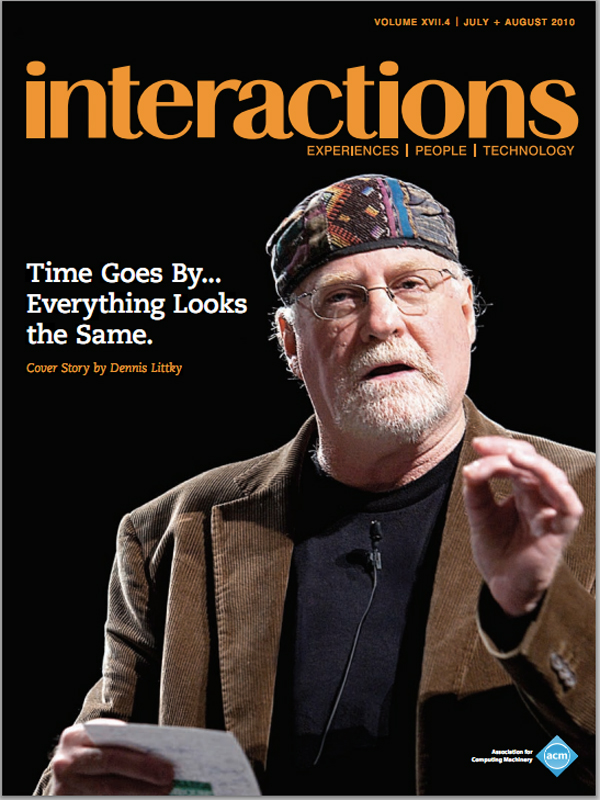Authors:
Ulrike Rivett, Melissa Loudon
Most e-Government projects end either in partial or total failure [1]. When the reasons for this are investigated, we are told that systems have failed because they try to force unwanted or contentious change in organizational processes, or because the technology requirements, such as hardware and connectivity, did not exist or were not maintainable due to limited human, technical, and financial resources. In general the literature on information and communication technology failure suggests that failure occurs because some aspect of the system contextsocial, technical, or politicalis inadequately understood. While such reasons are valid, our view is that the stubborn…
You must be a member of SIGCHI, a subscriber to ACM's Digital Library, or an interactions subscriber to read the full text of this article.
GET ACCESS
Join ACM SIGCHIIn addition to all of the professional benefits of being a SIGCHI member, members get full access to interactions online content and receive the print version of the magazine bimonthly.
Subscribe to the ACM Digital Library
Get access to all interactions content online and the entire archive of ACM publications dating back to 1954. (Please check with your institution to see if it already has a subscription.)
Subscribe to interactions
Get full access to interactions online content and receive the print version of the magazine bimonthly.







Post Comment
No Comments Found